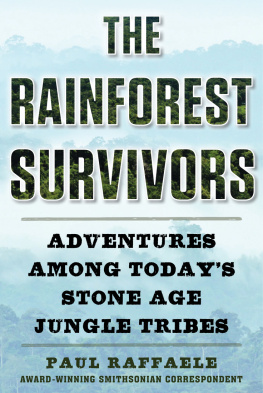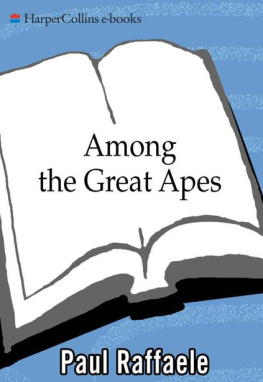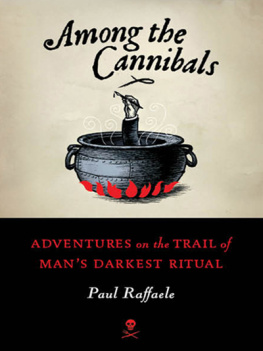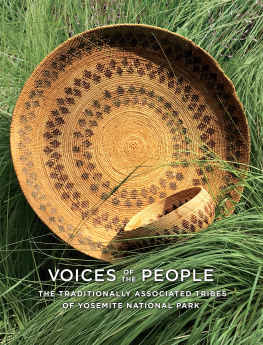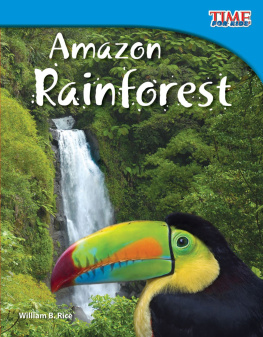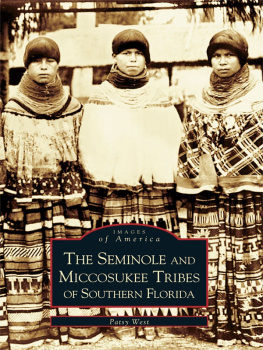
Praise for Paul Raffaele:
Raffaele might just be the last of the great old-fashioned adventure writers.
Peter Carlson, Washington Post .
Raffaele is one of the great journalists of our time.
Bernard Ohanian, former deputy editor, National Geographic magazine .
Raffaele is the last of a breed. He is a throwback to such nineteenth-century British explorer-writers as Richard Burton and John Hanning Speke.
Carey Winfrey, editor-in-chief, Smithsonian magazine.
Paul Raffaele is nothing less than a one-of-a-kind world treasure. Travelling via camel back and canoe, wrapping an anaconda around his neck, dancing with tribesmen, uncovering supposedly non-existent pockets of slaveryRaffaele brings back accurate, colorful stories from the remotest regions on earth. He reveals just how diverse human beings can be. His writing will not only grip readers but provide invaluable material for the historians of tomorrow.
Alvin Toffler, best-selling author of Future Shock and The Third Wave.
In breathtaking dispatches from forest front lines around the world, Paul Raffaele documents the fascinating richness and alarming future of the lives of our close cousins.
Professor Richard Wrangham, world-renowned primatologist, Harvard University.


For Cecilia, Cathy, Andrew, Bobby, and Bear
Copyright 2018 by Paul Raffaele
All rights reserved. No part of this book may be reproduced in any manner without the express written consent of the publisher, except in the case of brief excerpts in critical reviews or articles. All inquiries should be addressed to Skyhorse Publishing, 307 West 36th Street, 11th Floor, New York, NY 10018.
Skyhorse Publishing books may be purchased in bulk at special discounts for sales promotion, corporate gifts, fund-raising, or educational purposes. Special editions can also be created to specifications. For details, contact the Special Sales Department, Skyhorse Publishing, 307 West 36th Street, 11th Floor, New York, NY 10018 or .
Skyhorse and Skyhorse Publishing are registered trademarks of Skyhorse Publishing, Inc., a Delaware corporation.
Visit our website at www.skyhorsepublishing.com.
10 9 8 7 6 5 4 3 2 1
Library of Congress Cataloging-in-Publication Data is available on file.
Cover design by Tom Lau
Print ISBN: 978-1-5107-3711-2
Ebook ISBN: 978-1-5107-3713-6
Printed in the United States of America
CONTENTS
One of the gladdest moments in human life is the departure upon a distant journey into unknown lands. Sir Richard Burton
PROLOGUE
For much of my life I have wandered all the continents as a foreign correspondent seeking the most extraordinary peoples on Earth to witness and relate their compelling exploits. I especially seek the tribal survivors of the rainforests, those tens of thousands of indigenous peoples such as the Congo Pygmies, New Guineas Korowai cannibals, and the Amazon Korubo who still live traditionally in remote and often dangerous jungles with an annual rainfall of at least sixty inches. Their roots remain in the Stone Age even as the early years of the twenty-first century threaten to demolish forever their unique ways of life.
All over the world I have seen ancient civilizations discarding much of what made them unique for centuries, even millennia. Their youngsters have led the charge to modernize, clad in jeans, T-shirts, and sneakers, lining up to see the latest superhero movie on the big screen and mesmerized by the celebrities of Instagram and the taste of the latest McDonalds fare. But it is not just food, music, movies, and flashy clothes that have seduced them.
At the forefront of our Western ways is the compelling message to the young that they no longer need to obey ancient time-tested moral codes and behavior administered, sometimes harshly, by their elders. Our Western ways have undergone a profound cultural revolution, beginning in the 1960s based on the strident rights of the individual rather than traditional obligations to the community, and the worlds youth have enthusiastically flocked to it.
However, there are a few dozen tribes that remain living in the Stone Age, cut off from the rest of the world and knowing little or nothing about us and our very different ways. These rainforest survivor tribes, by their presence, are protecting many millions of square miles of virgin rainforest, the lungs of the earth.
I have journeyed many times to such peoples to witness how they live in admirable harmony with their environments, to hunt with them in their rainforests, to listen to their ancient stories, and to witness and attempt to understand their wisdom and mysterious rites forged over many millennia.
What are their similarities and differences, and what habitat and spiritual forces forged their unique natures? Soon enough their cultures will disappear, swamped by the lure of our modern waysfast food, satellite TV, and the tourist dollar that have turned many of their kin into sideshow acts in their own lands.
In this book I have relived my most recent memorable and meaningful adventures with these people from a distant time.
Mention of Pygmies evokes an alien world in deepest Africa humming with mystery and adventure. The ancients were dazzled by wanderers tales of a mysterious race of tiny Africans. Pharaohs and emperors of Rome were captivated by the worlds smallest people. Modern moguls, Hollywood movie directors, cast them as exotic extras in tales of primitive Africa.
And yet they are among the most modern of humans today, living traditionally in complete harmony with nature in their rainforests. For many thousands of years they have taken only what they needed from the forestsall their food, clothing, tools, and the saplings and mud they use to build their domed huts. All of it is biodegradable, disintegrating into forest mulch when abandoned.
In contrast, over the past centuries the Bantu, taller Africans, have invaded their homelands, burning and chopping down the forests to provide living space for themselves and grazing land for their cattle. The Pygmies lived side by side with their forests wildlife for millennia but Bantu poachers are stripping many of the forests of their wild creatures for marketplace meat. This is plunging the gorillas, rainforest elephants, and many other creatures to the edge of endangerment.
Many Pygmy clans by force or by necessity now live almost as diminutive Bantu, well outside of their beloved rainforests. The Bantu commonly marginalize, mock, brutalize, and enslave them. But the Bayaka clan in the tumultuous Central African Republic have retained most of their traditional practices even though they too are under daily threat from the Bantu.
I spent much time with the Bayaka in their vast rainforest during three journeys there. The clans greatest hunter, who barely came up to my shoulder (Im a mere 5'7") took me deep into the rainforest to track lowland gorillas and the rarely seen mysterious forest elephants. Our bond grew stronger when I saved the life of his baby boy.
Pygmy clans have no chief. The young Pygmies practice free love with their parents blessing, but once they marry infidelity is taboo. On my final night with them their most powerful rainforest spirit, Ejengi, emerged from a cluster of tall trees to greet the stranger from far away and dance for many hours in a frenzy of chanting and drumming with his people.
Next page
